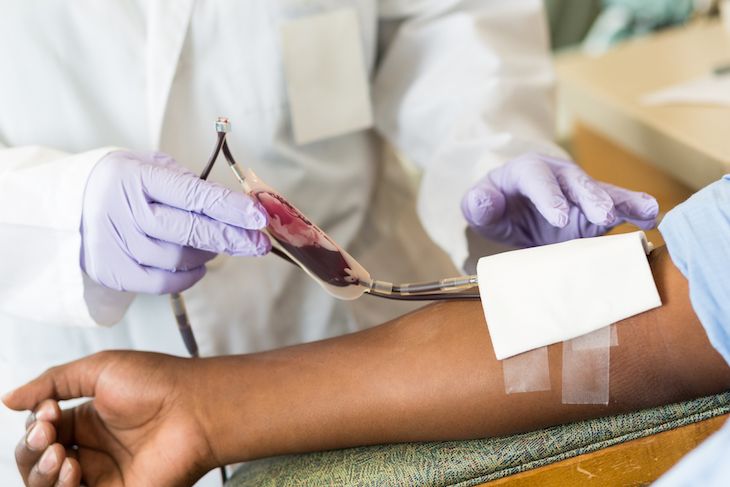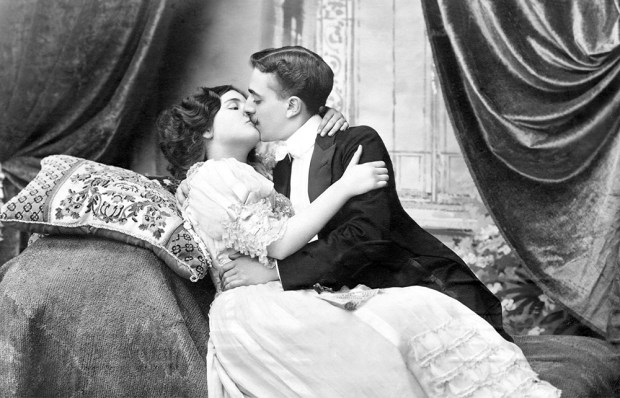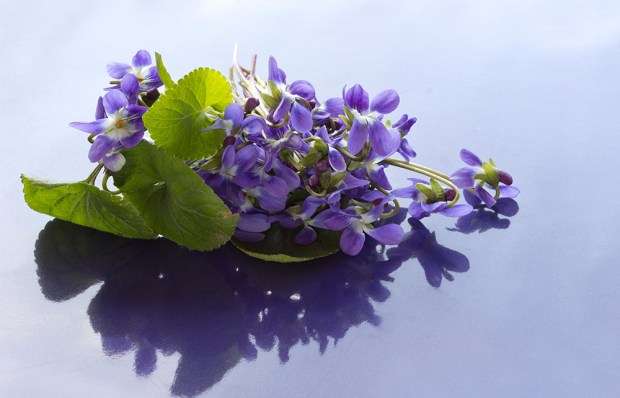‘Slight prick,’ she said. The nurses all say that before they slide the needle in the upstanding vein in the crook of my outstretched arm. The phrase must be in the training manual. The best nurses are professional and business-like as they prod the vein with a forefinger, then push the needle in. It’s nothing personal. However, this one was amateurish, lacking in confidence, and all too human. Puncturing a vein in my arm appeared to be a bigger deal for her than it was for me. A peculiar intimacy fell between us as the needle went in and travelled a little way up the vein. ‘How did you guess?’ I said.
I give a blood sample quarterly. The hospital then tests the sample for prostate-specific antigens. The resulting score is sent to the oncologist. She and I both hope for a consistently low score. If the score shoots up suddenly, it could mean the cancer is awake again and another bout of treatment is on the cards. Five years of regular blood tests have made me a connoisseur of the hollow-needle ritual. But I always forget to bring with me the blood-test request form that tells the nurse how she should label the sample.
‘I’ve forgotten my form again,’ I said as we watched the blood colour the tube and collect in the sample jar. ‘Typical man,’ she said. ‘Totally useless.’ ‘I know,’ I said. ‘We’re all like the men in the telly adverts — incompetent and child-like. As a species it’s over for us. It’s the women who are in charge now. We’re redundant.’ ‘And so is your race,’ she said in all seriousness.
I was pleased for her. As a nurse she might have lacked certainty in placing the needle, but as a woman of colour she was triumphant. After thousands of years of oppressing her kind, the bully was suddenly falling back in disarray along the entire front. ‘My poor race!’ I lamented. (I’ve been taunted for being of the white race in Africa, and plenty of times at university, too, but never yet in Devon.) ‘It’s over,’ she said. ‘Sorry.’
She was about my age, perhaps a bit younger. It hadn’t occurred to me that she wasn’t white. She taped a piece of cotton wool over the puncture mark, around which a purple and green bruise was already forming, and she didn’t do that very well either. ‘Will you be merciful?’ I said. ‘I really hope not,’ she said.
That evening I went to the pub and drank a lot of gin and life seemed so full of glorious possibilities that I was reluctant to go home. So I went on to another, remoter pub where I thought there might be a possibility of a late drink. In this pub there were three middle-aged regulars standing at the bar and three youngsters, a guy and two birds, gathered around a table. The women were conscious of their youthful superiority to the old farts staring into their pints at the bar. Even from a distance they appeared self-conscious and lacking in spontaneity. They were stoned, I guessed, but in a sacramental rather than a fun way. The woman with her back to me had a lovely back, which she was showing off with a backless top. ‘I do like a nice back,’ I said to her when she came up to the bar for a refill. She stiffened, strenuously ignored the remark and carefully placed said back between her and its source like a shield. Then she returned to the table with the drinks, and, looking wan and traumatised, reported to her pals the dreadful thing that had been said, upon which the other two assumed expressions and postures reflecting their outrage, incredulity and deep hurt.
Five minutes later the chap went to the toilet. On the way back, he paused beside me and said quietly: ‘I can’t believe you said that. That was so offensive.’ Over his shoulder I could see his birds watching us carefully over theirs. I supposed he had promised not to let something so offensive pass without rebuke. He was mild-mannered and a flyweight and I think he was asserting a moral rather than physical superiority. I briefly considered the possibility that he was being witty or ironic. But my comment, as reported, seemed to have shaken him. ‘In which case I apologise,’ I said frankly. And he shot back to his chair, duty done.
Got something to add? Join the discussion and comment below.
Get 10 issues for just $10
Subscribe to The Spectator Australia today for the next 10 magazine issues, plus full online access, for just $10.
You might disagree with half of it, but you’ll enjoy reading all of it. Try your first month for free, then just $2 a week for the remainder of your first year.















Comments
Don't miss out
Join the conversation with other Spectator Australia readers. Subscribe to leave a comment.
SUBSCRIBEAlready a subscriber? Log in